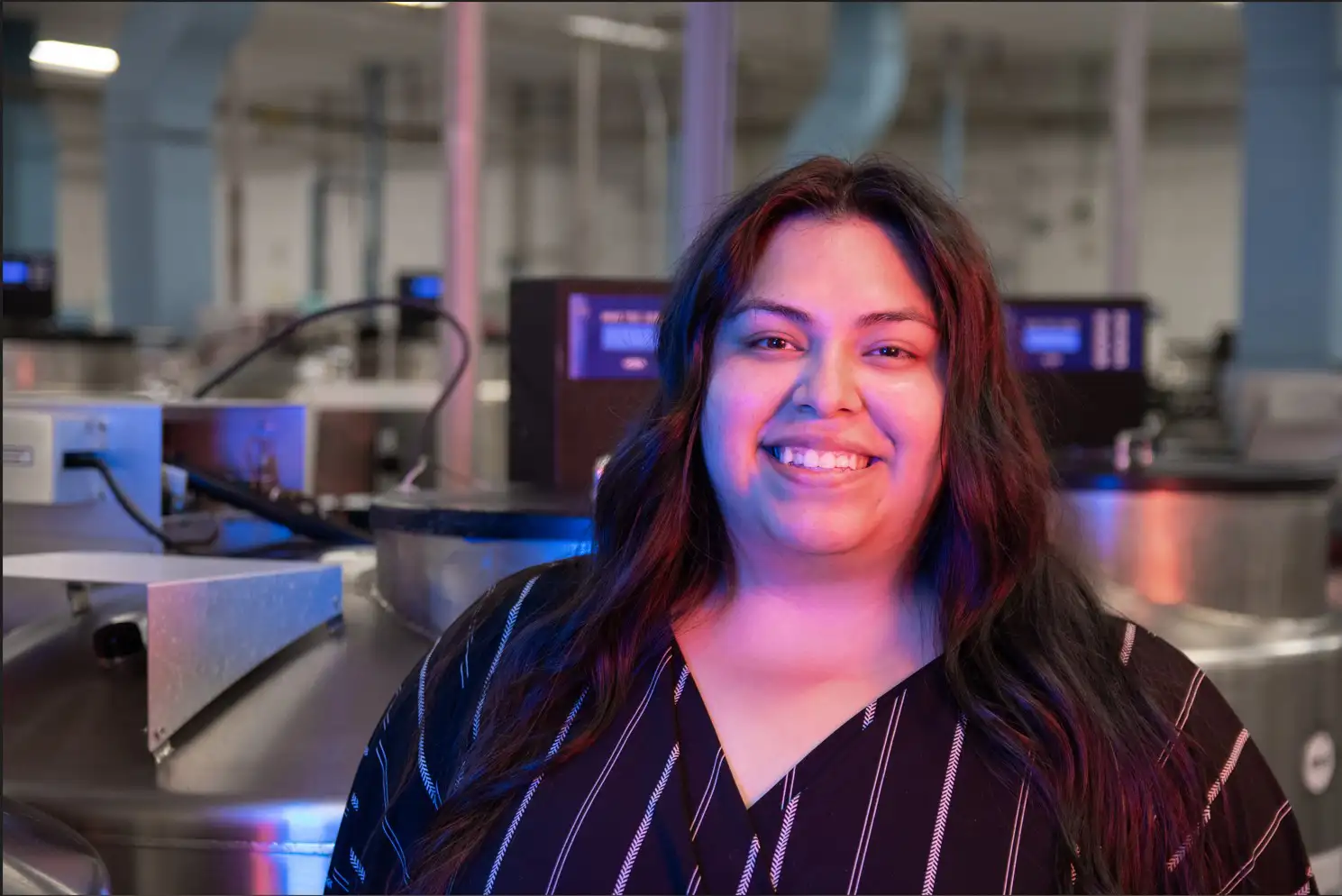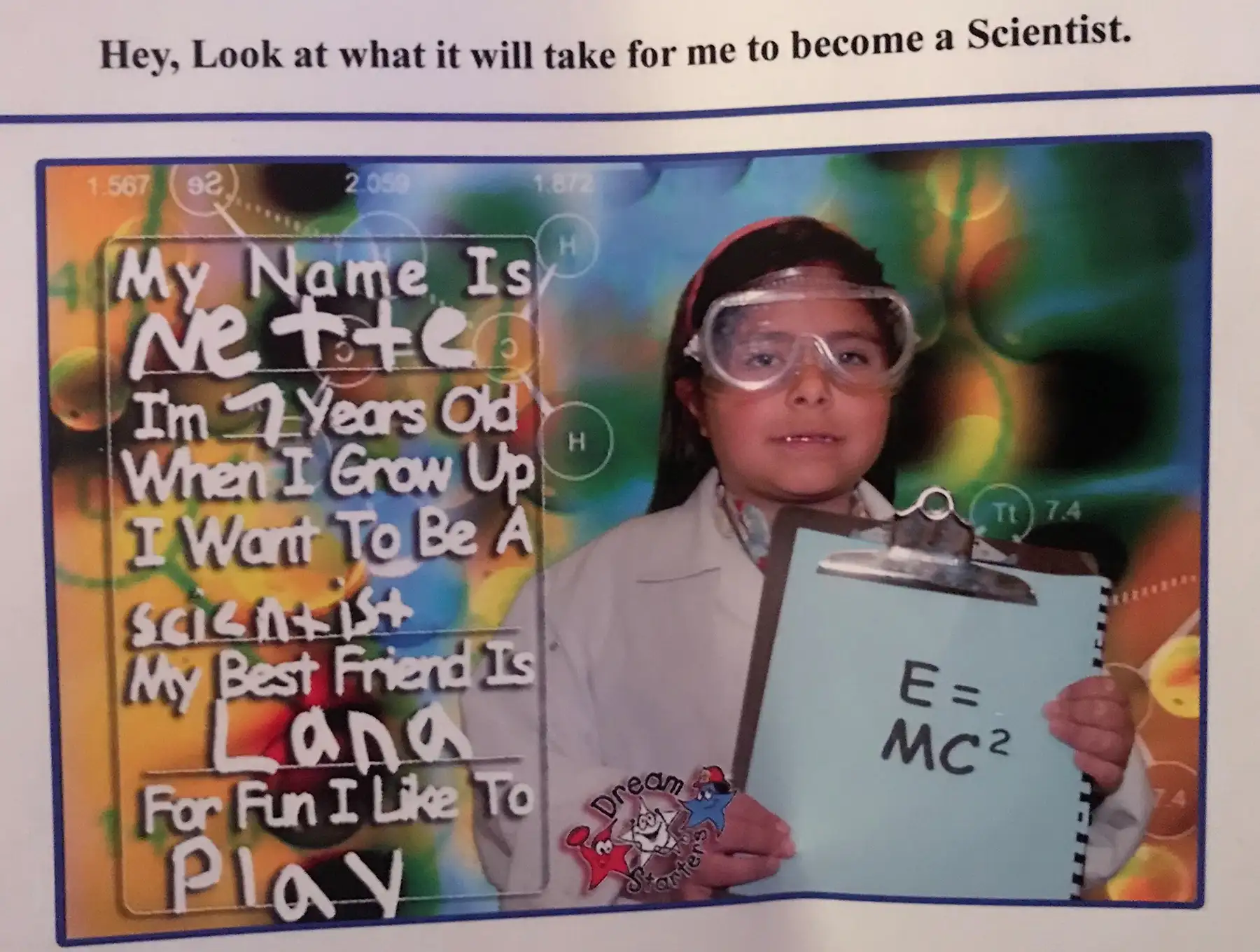Biologist researches how public health laboratories can improve policy on emergency preparedness
Meet Elizanette “Nette” Lopez

Elizanette “Nette” Lopez is studying how to develop plans for preparing and responding to public health emergencies at the Centers for Disease Control and Prevention (CDC). (Photo Credit: Elizanette Lopez)
Elizanette “Nette” Lopez came from a family of ranchers and sharecroppers. Her parents are first-generation college students. Her grandmother, who did not finish her education, encouraged her to keep learning and achieving. Lopez also remembers being inspired to love science at seven years old thanks to television shows like “Dexter’s Laboratory” and various programs on Animal Planet. She graduated with her bachelor’s degree in biology from Angelo State University and her master’s degree in microbiology from Oregon State University.
“I stayed with my grandmother the summer before leaving for graduate school,” said Lopez. “There, she mentioned that my grandfather--whom I didn’t get to meet--had a love for biology and even had a subscription to National Geographic that he would read from cover to cover. This was very special for me to hear because it felt like a confirmation that I was on the right path.”
Working at the Centers for Disease Control and Prevention (CDC) had been Lopez’s dream job, so she joined the Research Participation Opportunities at the CDC as an Oak Ridge Institute for Science and Education (ORISE) fellow. The CDC Research Participation Programs are educational and training programs designed to provide students, recent graduates and university faculty opportunities to participate in project-specific CDC research, current public health research and developmental activities.

She was a part of CDC’s Biorepository (CBR) in the Division of Laboratory Systems, Center for Surveillance, Epidemiology and Laboratory Systems, Informatics and Data Science Branch (DLS/CSELS/IDSB) and then transitioned to DLS/National Laboratory Response System Branch (NLRSB) with the Clinical Laboratory Engagement Team.
With CBR, Lopez studied best practices for laboratory procedures, such as biorepository standards, collection management policies and accreditation standards. The team successfully applied policy and training which maintained their College of American Pathologists (CAP) accreditation with no deficiencies.
Now under NLRSB, Lopez is learning about important aspects of public health laboratories. Included in her focus is survey design and implementation. NLRSB wants to be better prepared for public health emergencies, so being able to quickly respond to emergency situations by implementing diagnostic tests is essential. Lopez will use both public and private avenues to assess clinical testing needs for future improvement.
One of the unique experiences Lopez has encountered is supporting responses for outbreaks of COVID-19, mpox virus and Ebola at the same time. This challenge required her to be quick and efficient in a fast-paced environment. Now, Lopez spends most days researching independently or with collaborators in the laboratory.
As a CDC fellow, Lopez has branched out from her academic focus to learn about project management and networking, and she attends professional development conferences. She is a board member of UNIDOS: The Association of Hispanic/Latino Employees at CDC/ATSDR, where she furthers her leadership skills and promotes diversity, equity, inclusion and accessibility efforts.
“I would absolutely recommend this program to others,” said Lopez. “ORISE gives you the opportunity and flexibility to learn about the career path you may be interested in. There are so many different ORISE fellowships to choose from that help bridge the gap between college and your future career. I’ve had very encouraging and supportive mentors who have helped strengthen my confidence as a scientist.”
After her fellowship is completed, Lopez plans to continue with the CDC and remain in public health. Specifically, Lopez wants to focus on infectious diseases, parasitology and working with underserved communities. Until then, she continues to learn from the diverse scientists around her. Outside of her fellowship, Lopez enjoys taking her dog Petri to the dog park and caring for more than 100 houseplants.
The CDC Research Participation Program is managed by the Oak Ridge Institute for Science and Education (ORISE) under an agreement between CDC and the U.S. Department of Energy (DOE). ORISE is managed for DOE by ORAU.

